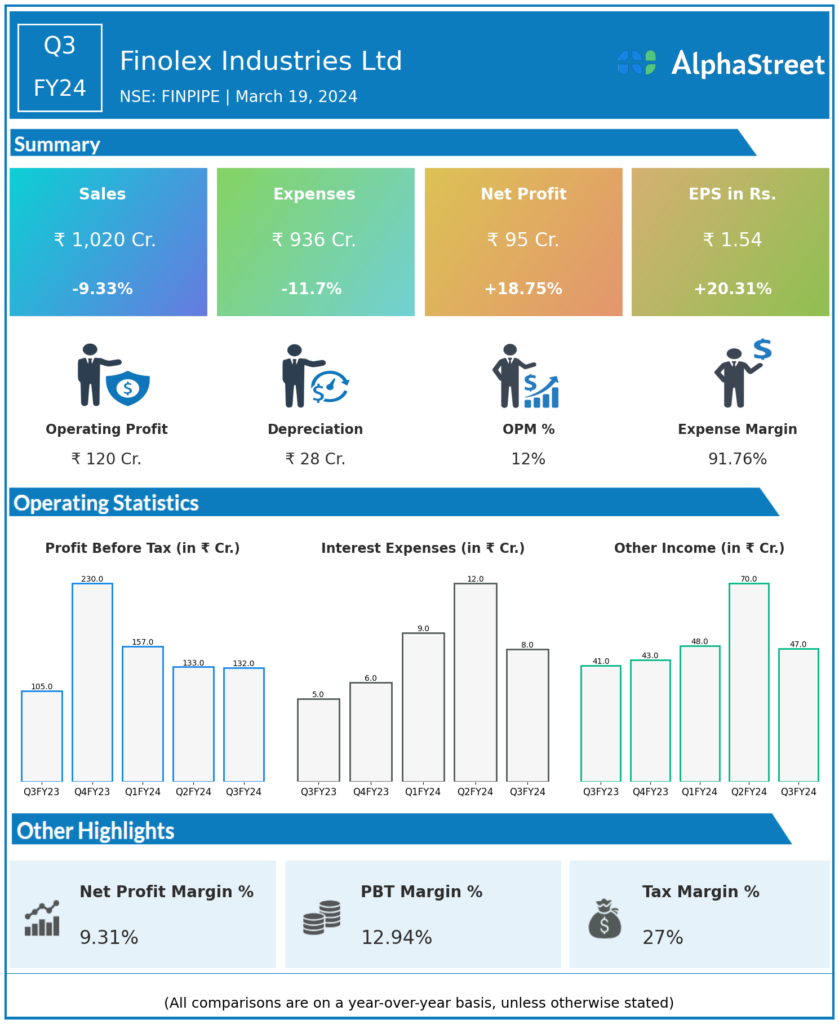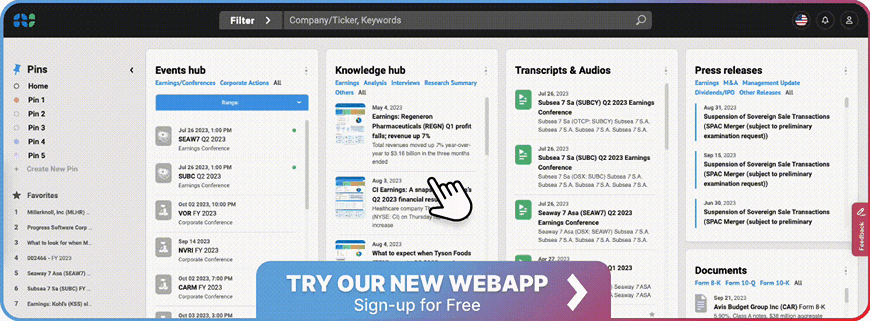Finolex Industries Limited (FIL) is a leading manufacturer of PVC Resin and the largest producer of PVC Pipes & Fittings in India. The Company offers the latest range of superior quality and durable PVC-U pipes and fittings used in agriculture, construction and industrial operations. Its product portfolio consists of two major divisions:
PVC Resin
PVC Pipes & Fittings
Financial Results:
Finolex Industries Ltd reported Revenues for Q3FY24 of ₹1,020.00 Crores down from ₹1,125.00 Crore year on year, a fall of 9.33%.
Total Expenses for Q3FY24 of ₹936.00 Crores down from ₹1,060.00 Crores year on year, a fall of 11.7%.
Consolidated Net Profit of ₹95.00 Crores up 18.75% from ₹80.00 Crores in the same quarter of the previous year.
The Earnings per Share is ₹1.54, up 20.31% from ₹1.28 in the same quarter of the previous year.

*It is important to note that the way the results have been accounted for are slightly different than the ones the companies may choose to publish.
*The presented data is automatically generated. It may occasionally generate incorrect information.

